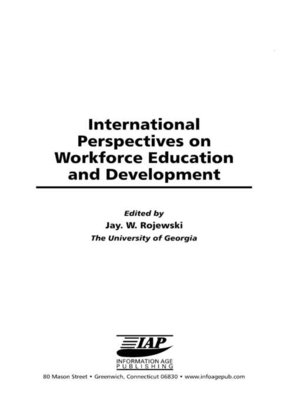
Sign up to save your library
With an OverDrive account, you can save your favorite libraries for at-a-glance information about availability. Find out more about OverDrive accounts.
Find this title in Libby, the library reading app by OverDrive.



Search for a digital library with this title
Title found at these libraries:
| Library Name | Distance |
|---|---|
| Loading... |
Development of this text has been based on the notion that workforce education and development (WFED) systems"”such as, secondary and postsecondary vocational and technical education (VTE), career education and guidance, human resource and organizational development (HROD), and adult training and retraining including literacy programs"”have essential roles to play in supporting both individual and national efforts to successfully participate in and reap the benefits offered by globalization. While this assumption has intuitive appeal, not everyone believes that vocational preparation programs result in positive outcomes. Psacharopoulos (1997), an outspoken international critic of vocational education and training, argues that WFED programs often have a low rate of return on a country's investment when compared to that of the general academic curriculum. He contends that WFED initiatives often fail because too much emphasis is placed on these efforts to address myriad complex issues, and that decision makers do not utilize the available evidence about VTE to make prudent, informed choices. Instead, major players in the global economy like the World Bank tout basic academic education as an essential priority for developing countries wanting to enter into global markets and exchange.







